Hopefully you’ve had a chance to get Kingdomino to your table. If not, check out our Kingdomino review. Veteran game designer, Bruno Cathala, has taken his tile laying hit and made it accessible for a younger audience.
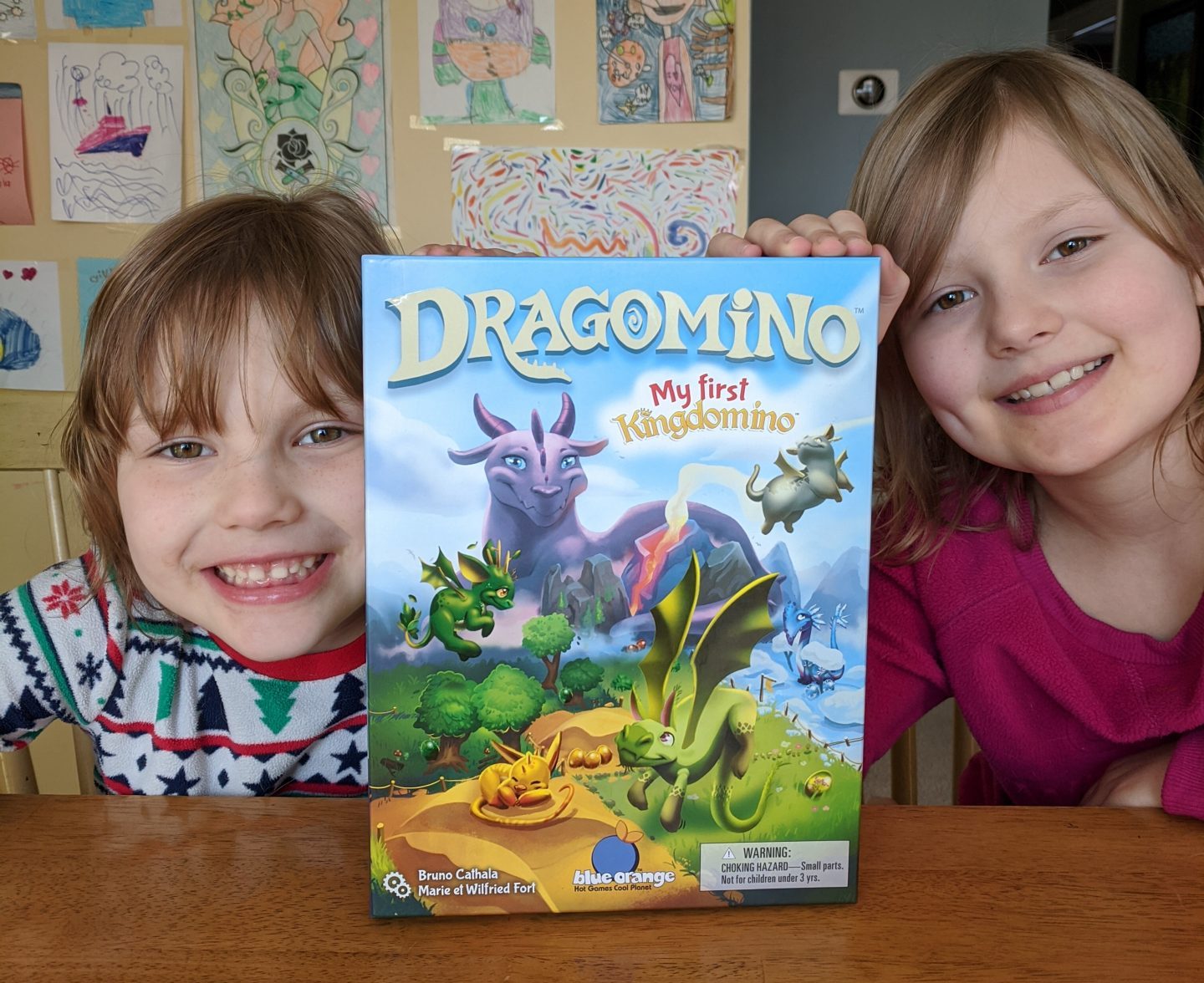
How to Play
Dragomino plays very similarly to its predecessors but much simpler.
As a new Dragon Rider you’ve been tasked with exploring the land to discover the most dragons!
Each player starts with the same base tile. On a player’s turn they take two actions: visit places, then show their discoveries. Visiting places is merely taking a tile from the 4 laid out. Showing discoveries entails placing the newly gathered tile and connecting it to the player’s tiles in front of them.
Doing this creates connections. After a player has placed their tile they check their connections. For each new connection where the landscapes are different, nothing happens. For each connection where they match, take a corresponding dragon egg! There are several landscapes and dragon eggs that match: desert, snow, prairies, forests, mountains, and volcanoes. Flip the dragon egg over to see if you hatched a baby dragon and place the dragon/shell token between the two matched tiles. If there’s a baby dragon in the egg, congratulations, it’s worth 1 point! However, if it’s an empty shell the player doesn’t win anything but they can take the Mother Dragon and she’ll let that player go first the next round. It should be noted that the Mother Dragon can be taken by another player.
When the final landscape tile has been taken and placed the game ends and players count how many baby dragons they have. Remember, if a player has the Mother Dragon at the end of the game that’s an extra point!
There’s a variation where the pools on the landscape tiles are used: if a match is made and at least 1 of the landscapes have a pool then the player draws 2 eggs, picks the one they want to keep, and places the other back in the egg pile.
Thoughts
The “-omino” line is a strong series that can be high in strategy but in my opinion very accessible and unique. My 8 year old, Clara, enjoys Kingdomino and even gets in a win every now and then. My 6 year old, Olivia, enjoys it most when she’s on someone’s ‘team’ and gets some help. So, there’s a precedent here for this type of game being successful on our table. When we received Dragomino the art itself caused my girls to leap with excitement.
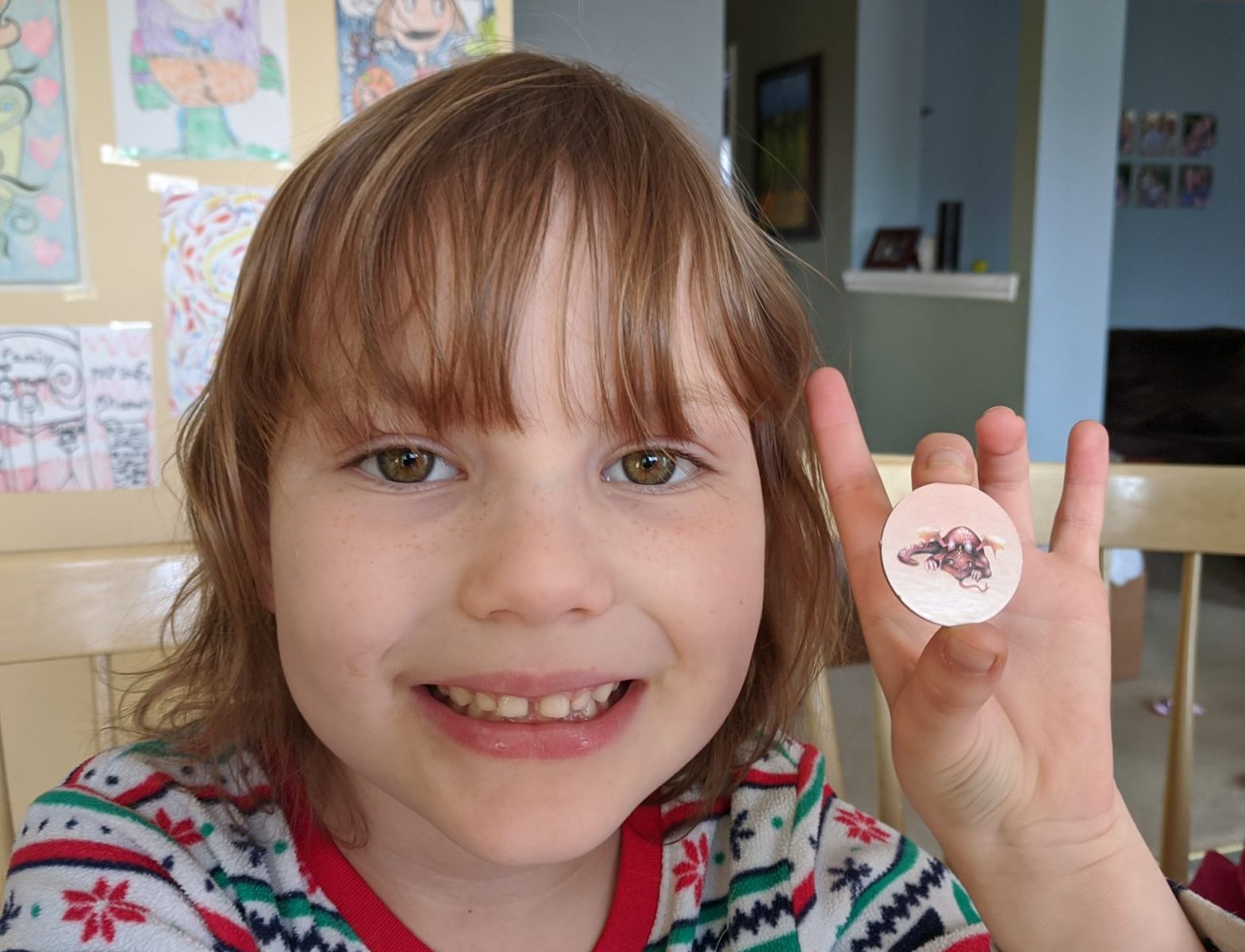
The illustrators, Maëva Da Silva and Christine Deschamps, absolutely knocked it out of the park and I think that’s what really makes this game wonderful. The bright diverse colors draw the eye everywhere, starting with the box itself. There’s a giant happy-looking Mother Dragon looking over different biomes with baby dragons flitting excitedly about. It took me about 10 minutes to actually open the game because my girls were so busy checking out all the colorful details on the box.
When we finally opened it the joy was palpable. They insisted on helping me set up the game, which is fine but took a bit longer than if I had done it alone, but this is supposed to be family learning time, right? As we set up the game they enjoyed studying each unique egg and dragon and organizing them into their specific piles.
After giving the instructions, which were very easy for them to understand, we dove right into the game. The strategy isn’t too deep for young ones to understand; draw a tile and match sides. You’re not punished if you can’t match sides, which is nice for very young players. For older players the randomness of the hatching eggs can be a bit frustrating. Even if you feel like you’ve planned and chosen tiles well you may end up with very few to no hatched dragons. Getting the Mother Dragon for empty eggs is helpful, but it can be disappointing if your turn is early in the round as she can be taken from you.
We usually play with a less competitive attitude (Olivia likes to say, “Let’s make this a no-winning game”) and so this helps with the frustration. The game suggests 5+ years old and I very much agree. It’s great for a young audience to get into games; understanding turn taking, strategy, dealing with disappointment, and even losing. But you can very much play this like a no-winning game and just attempt to get a high personal score. Once players reach 8 to 9, especially if they are familiar with board games, this may be a bit too simple for them but it is still attractive enough with the art, style, and theme to get them invested. If you’re looking for a quick, fun, exciting family game to get everyone in the house involved Dragomino is a great one to get to the table.


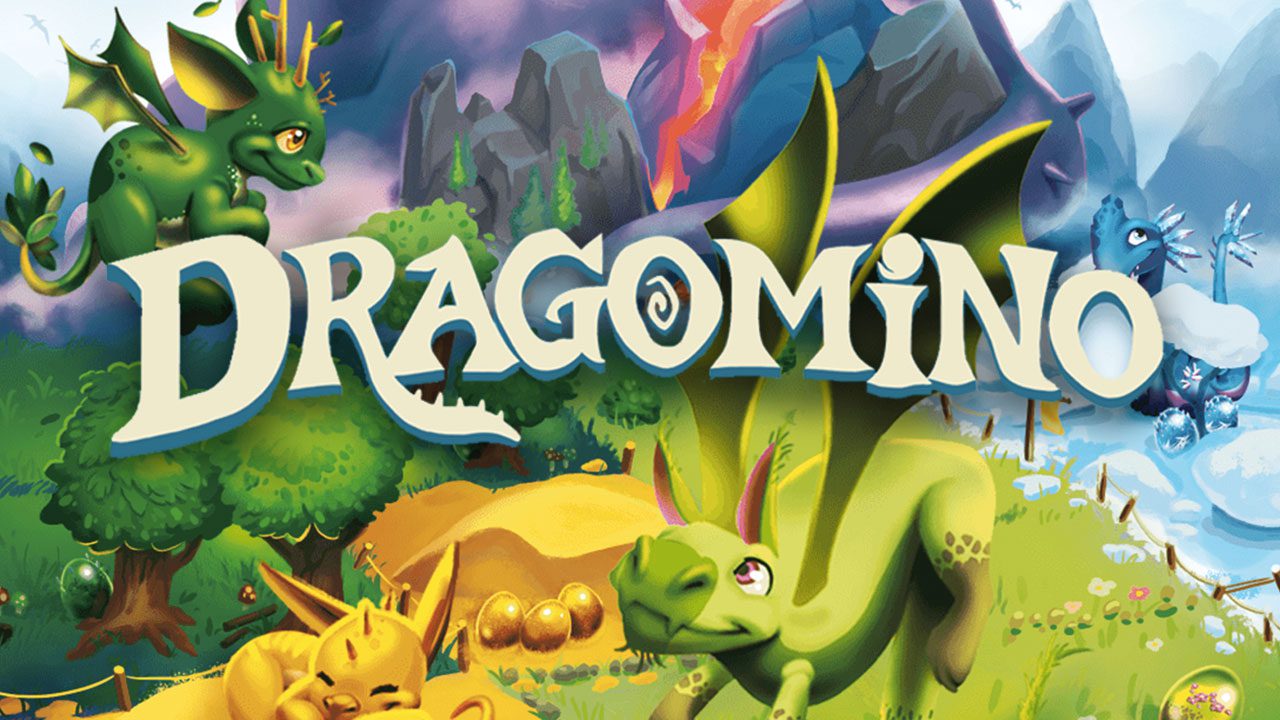
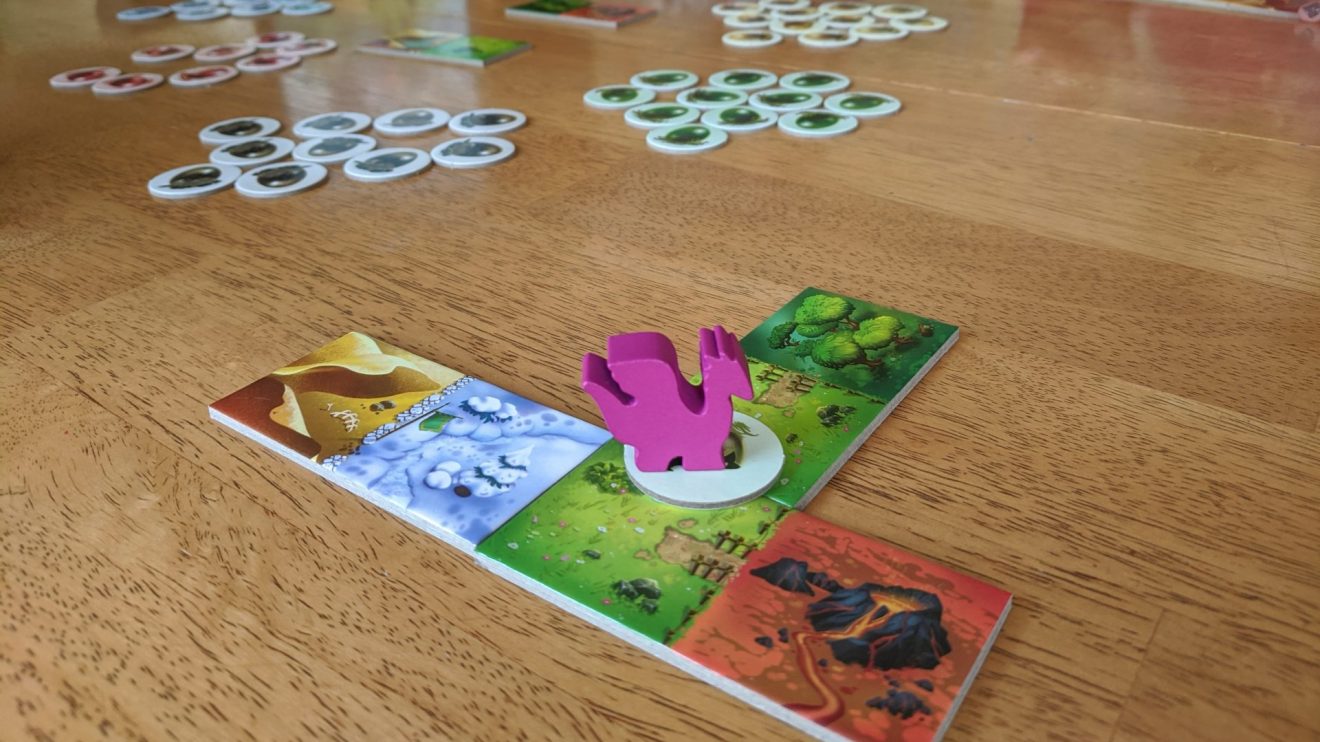
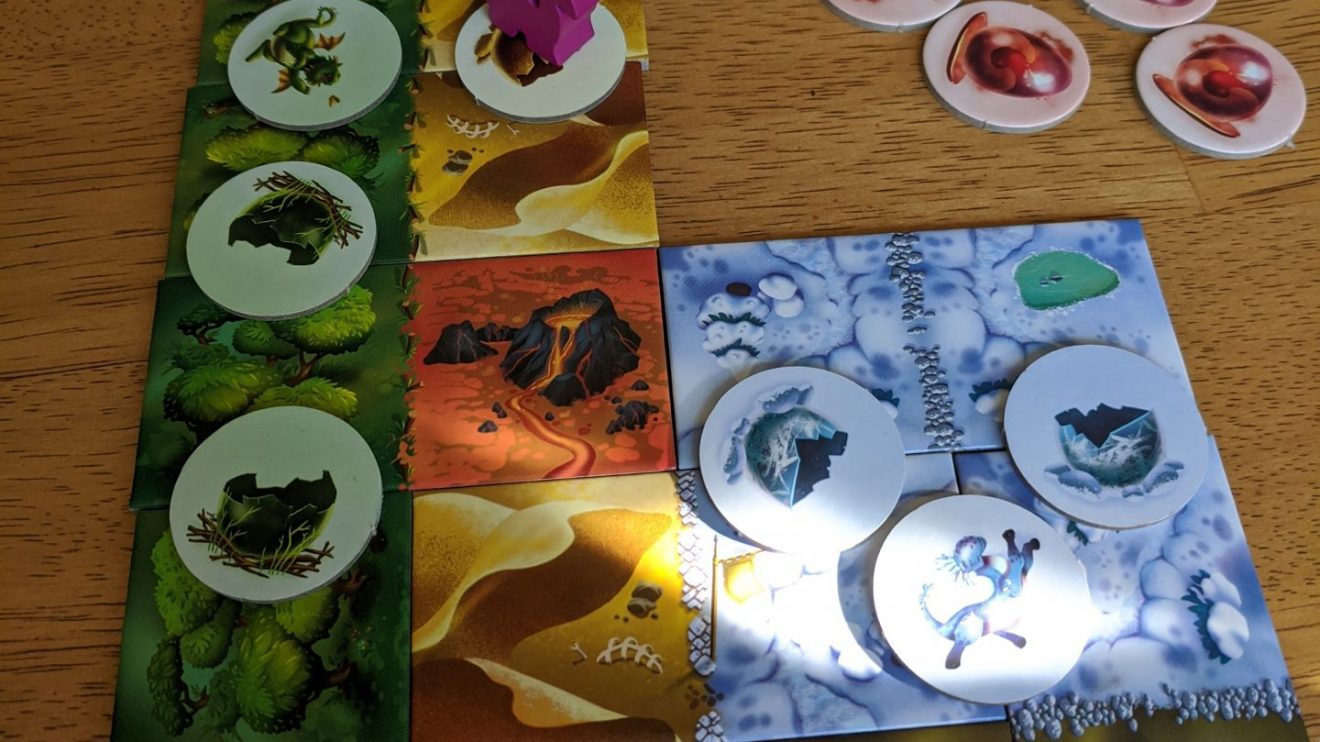
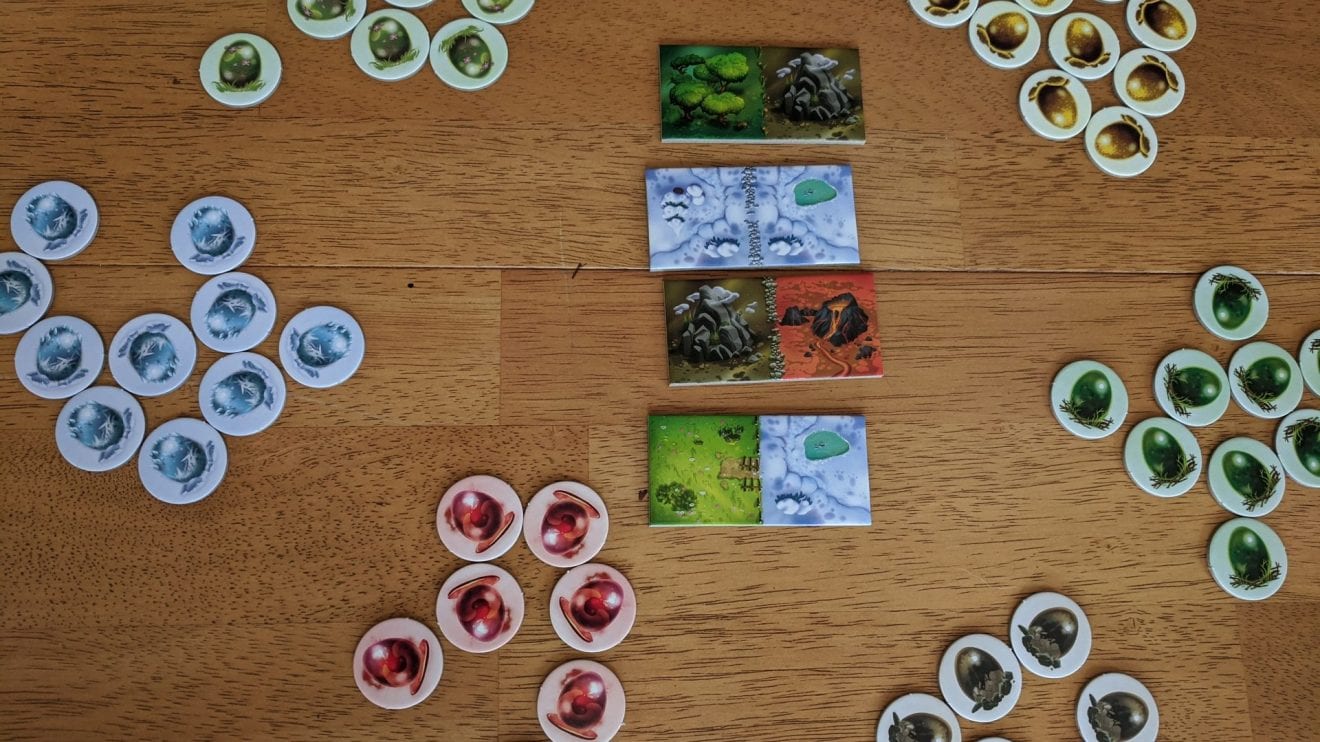
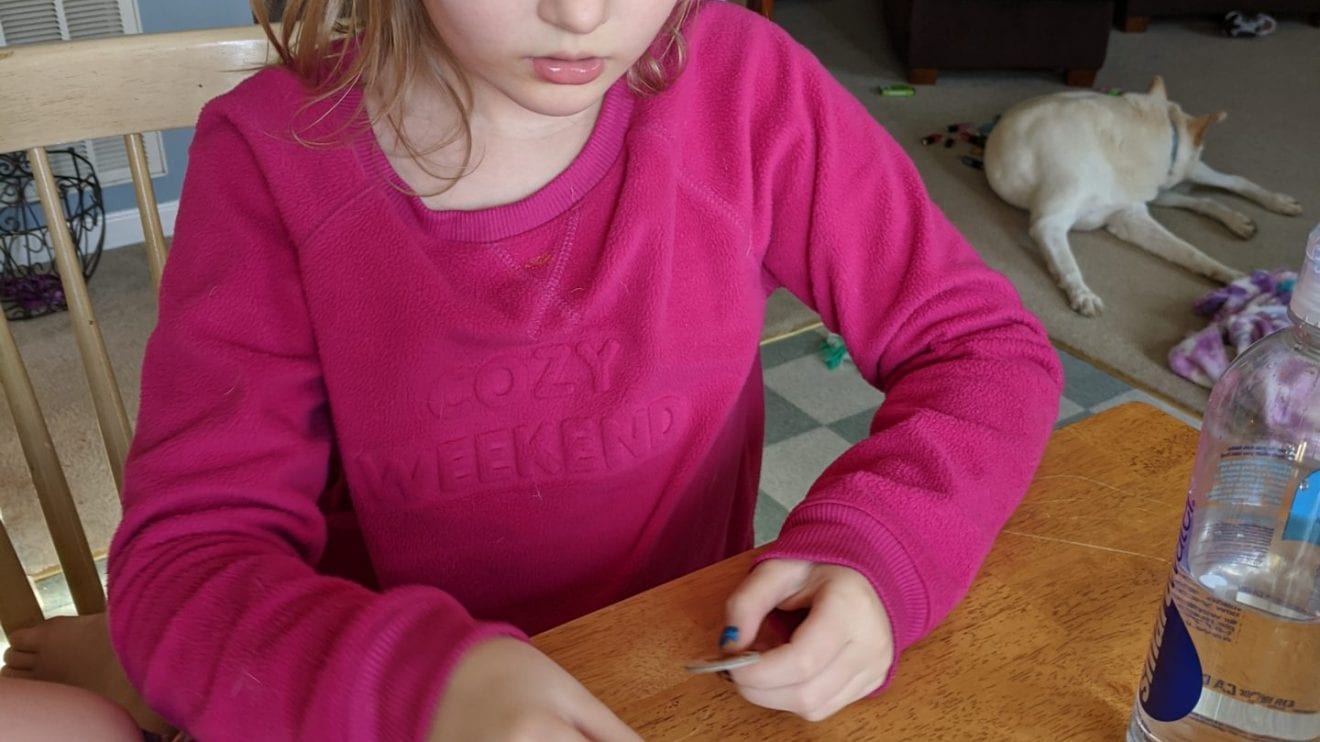
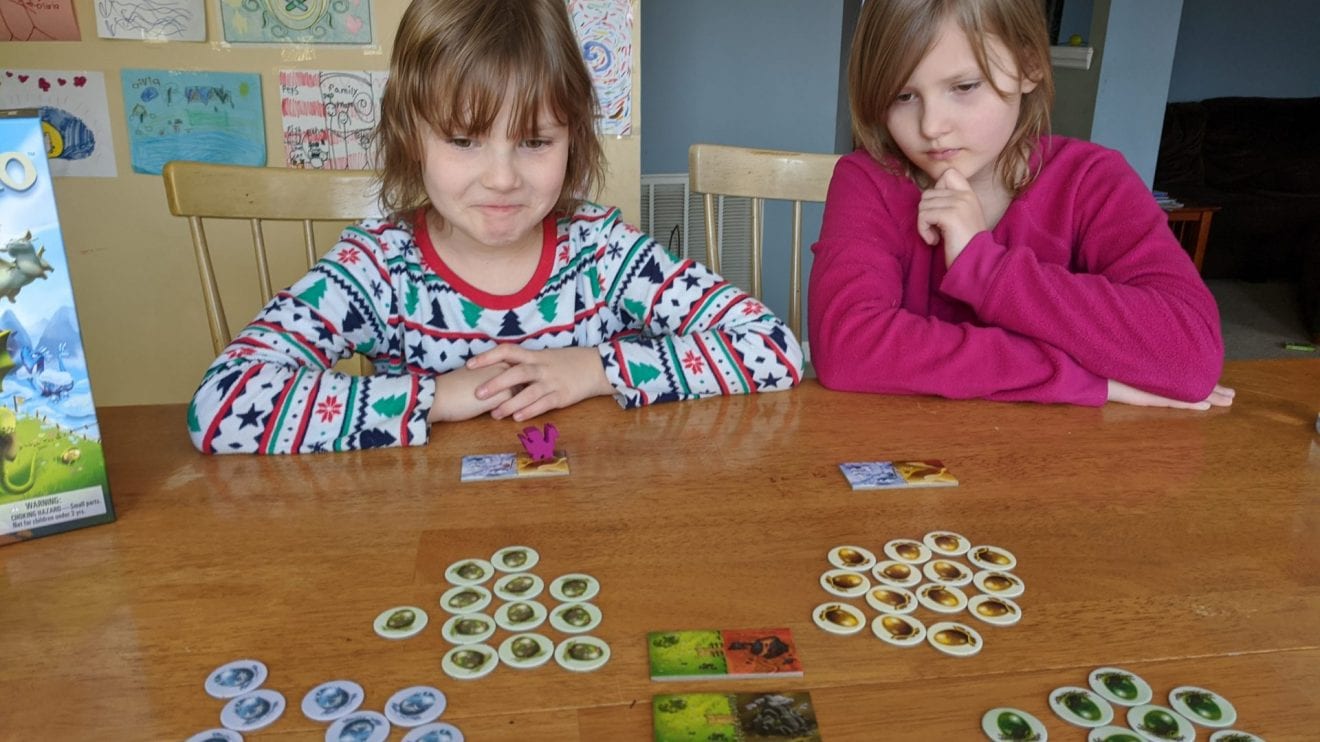
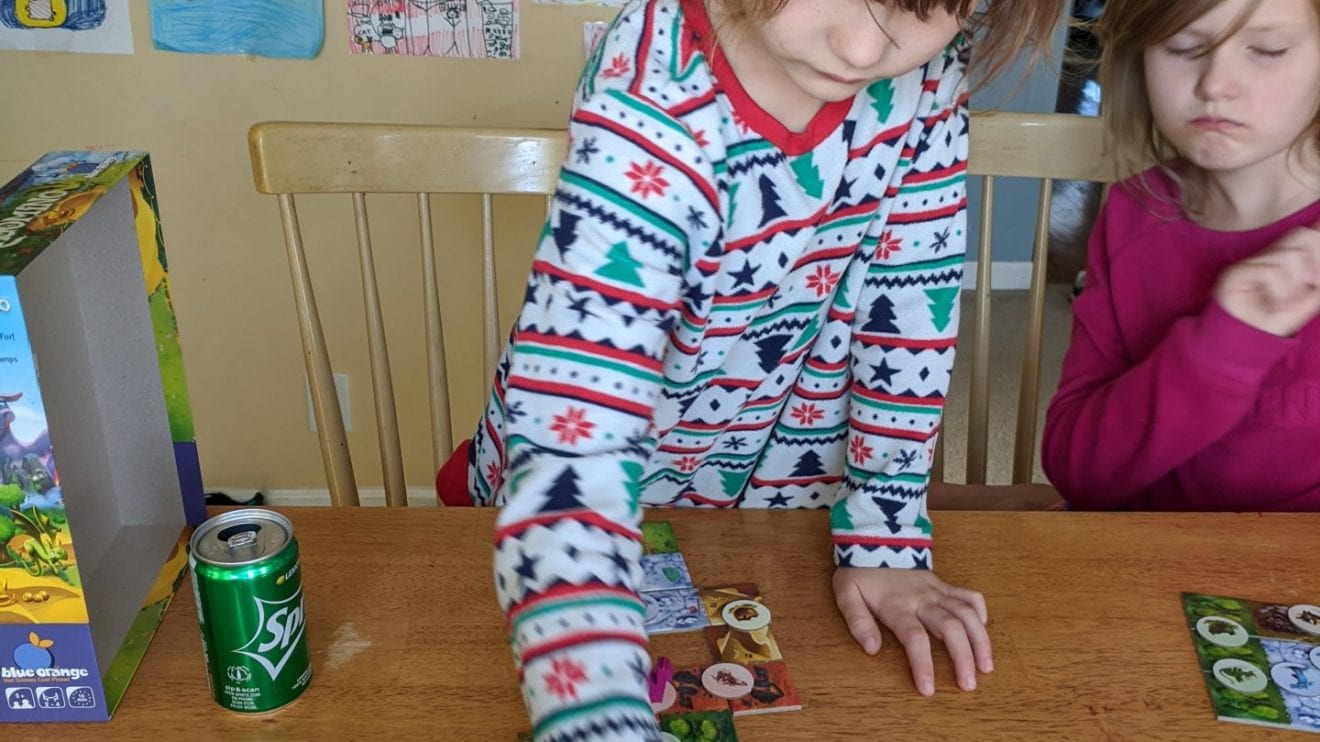

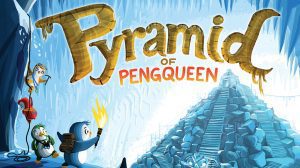


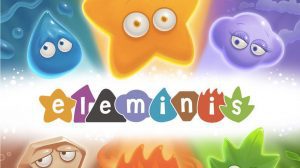




This game would have been perfect for me and my kids about 10-12 years ago. At this point, I do not think my upper-teen-aged kids would be interested. 🙁
Thanks for a fun review.
Thanks for the kind words!
While Dragomino is great for the young ones, your older ones may enjoy Kingdomino and Queendomino!